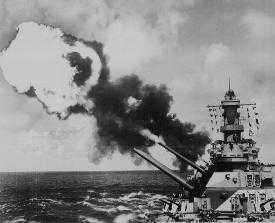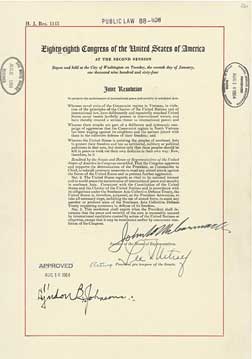As I was searching through some of my granddad's old records, I came across some material. Ironically, this was not something he wrote, rather something someone else wrote about him.
An article in
Journalism History discussed what Pappy started to dig up shortly after the Gulf of Tonkin incident in early August of 1964.
According to this article, Pappy found that the United States was provoking the North Vietnamese to fire upon them. Why would the Vietnamese go out of their way to pick a fight with the mighty U.S.? Well, they probably wouldn't. But U.S. forces likely provoked the North Vietnamese military to attack U.S. ships (Blissert).
Also, my grandfather found that the second attack on U.S. ships -- the attack that prompted the government to invade Vietnam -- likely never happened.
Edwin Moise, a scholar who wrote the book,
Tonkin Gulf and the Escalation of the Vietnam War, finds more evidence about what happened during that second, alleged attack.
"Almost everyone on the two destroyers believed, during the incident, that they were under attack. Some still believe so, while others have since decided that what had appeared on radar screens as torpedo boats had actually been false images generated by weather conditions, birds, or American planes overhead. Consideration of all of the evidence—the testimony of U.S. personnel from the two destroyers and of pilots who were overhead, declassified U.S. records, communications intercepts, interrogation of North Vietnamese torpedo boat personnel captured later in the war, etc.—leads to a clear conclusion: there was no attack. But the original report of an attack was not a lie concocted to provide an excuse for escalation; it was a genuine mistake"(Moise).
Moise finds that the second attack was not a cover-up, but rather was a series of mistakes and heightened fear that caused those on board to feel they were being attacked.
A short time later though, the government likely began to question whether or not the second attack actually happened. However, as my grandfather found, the U.S. government deceived the country by suggesting that there
was complete certainty about the second attack (Blissert).
Pappy was probably scared at this time because he was uncovering something big. He was out on his own and not too many people believed him. Others probably thought my grandfather was crazy. If they only knew...


